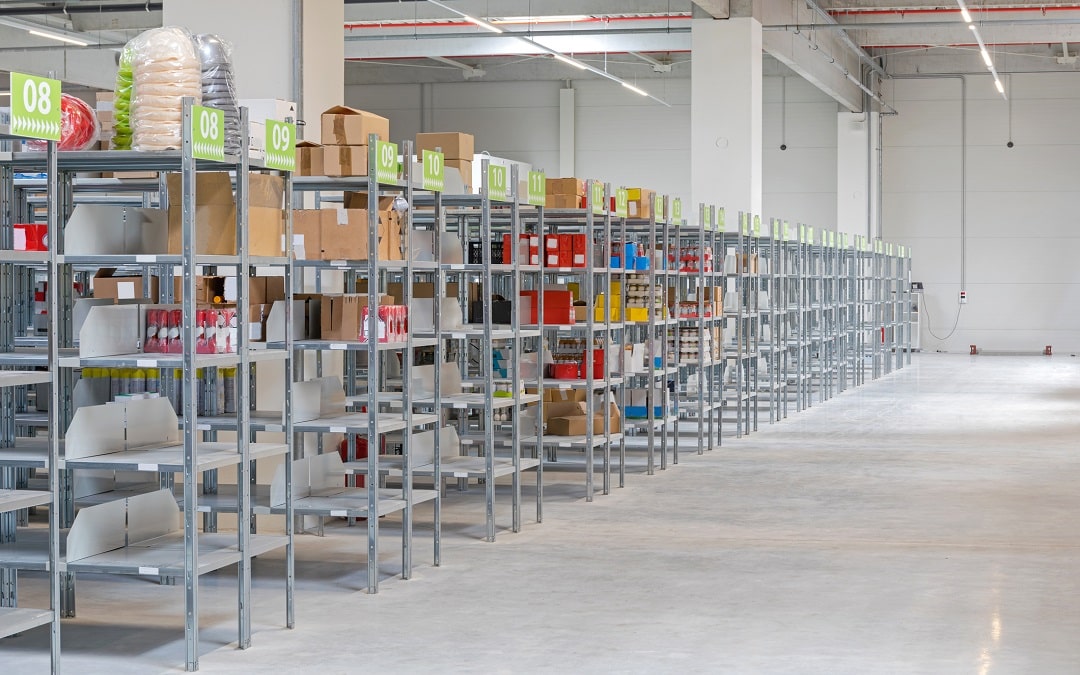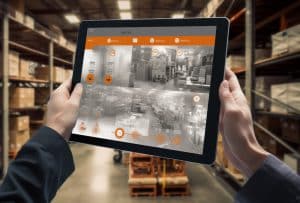In the world of e-commerce, efficient order fulfilment is crucial for both inventory management, and business success in general. In this blog post, we’ll explore what a third-party fulfilment centre is and why it’s essential to understand its potential implications for e-commerce accounting and tax management.
What is a Third-Party Fulfilment Center?
A third-party fulfilment centre, often abbreviated as 3PL, is a specialised facility that helps e-commerce businesses manage their inventory storage, order processing, and shipping needs. These centres play a pivotal role in the supply chain by offering comprehensive services, including:
- Inventory Storage: E-commerce businesses can store their products in a 3PL’s warehouse. This allows them to maintain a diverse product range without the burden of owning and managing their storage facilities.
- Order Processing: When a customer places an order, the 3PL centre receives the order details and picks, packs, and ships the products directly to the customer on behalf of the e-commerce business.
- Shipping and Logistics: 3PLs have established shipping networks and partnerships with various carriers. They can often negotiate better shipping rates, leading to cost savings for e-commerce businesses.
- Returns Management: Handling returns can be a time-consuming process. 3PLs often offer services to manage returns efficiently, saving time and effort for e-commerce businesses.
Why Do E-commerce Businesses Use Third-Party Fulfilment Centres?
E-commerce businesses choose to partner with 3PLs for several reasons:
- Scalability: 3PLs allow businesses to scale their operations without the need for additional infrastructure or staff, making it easier to handle fluctuating order volumes.
- Cost Efficiency: Outsourcing to a 3PL can lead to cost savings in warehousing, labour, and shipping, as 3PLs benefit from economies of scale.
- Focus on Core Operations: E-commerce businesses can focus on product development, marketing, and customer service while leaving logistics to the experts.
- Global Reach: Many 3PLs have a global presence, making it easier for e-commerce businesses to expand into international markets.
Accounting and Tax Implications of Using a Third-Party
Now, let’s discuss the accounting and tax considerations when working with a 3PL:
- Inventory Valuation: The method used for inventory valuation (e.g., FIFO, LIFO, or specific identification) may impact the cost of goods sold (COGS) and, consequently, the business’s taxable income.
- Sales Tax Nexus: Using a 3PL may create obligations to register for VAT or sales tax in the countries where inventory is stored. This can trigger new VAT or sales tax obligations, and proper compliance is crucial to avoid penalties.
- Reporting and Documentation: Maintaining accurate records of inventory, orders, and shipping transactions is essential for tax reporting and compliance. This becomes more complex when inventory is stored in multiple locations.
Fulfilled by Amazon
Many e-commerce businesses wonder whether they can leverage both Amazon FBA and an FBA-approved 3PL for their fulfilment needs.
Amazon FBA is a popular choice for e-commerce businesses due to its vast customer reach and reliable fulfilment services. However, some businesses may find it beneficial to complement Amazon FBA with an FBA-approved 3PL. Here’s why:
- Diversified Fulfilment Options: By utilising both Amazon FBA and an FBA-approved 3PL, e-commerce businesses can diversify their options. This strategy provides flexibility and redundancy in case of unexpected disruptions or changes in their fulfilment needs.
- Multi-Channel Fulfilment: Some e-commerce businesses sell their products through multiple channels beyond Amazon. An FBA-approved 3PL can fulfil orders from various sales channels, streamlining operations and improving customer service.
- Storage Cost Control: Amazon FBA charges storage fees based on the volume of inventory stored in their warehouses. An FBA-approved 3PL can help businesses manage their inventory storage costs more efficiently by offering competitive rates or alternative storage solutions.
- Custom Packaging and Branding: Businesses that prioritize custom packaging or branding can work with an FBA-approved 3PL to maintain full control over these aspects, even if they still utilise Amazon FBA.
Cost Considerations of Using Amazon FBA and an FBA-Approved 3PL
While leveraging both Amazon FBA and an FBA-approved 3PL can provide numerous benefits, it’s crucial to understand the cost considerations:
- Fulfilment Fees: E-commerce businesses should carefully analyse the fulfilment fees associated with both Amazon FBA and the 3PL. Compare costs for picking, packing, and shipping to determine the most cost-effective solution for each product or order type.
- Storage Costs: Consider how storage costs from Amazon FBA compare to those of the 3PL. Depending on the volume and seasonality of inventory, one option may be more cost-effective than the other.
- Shipping Costs: Evaluate the shipping rates offered by both Amazon FBA and the 3PL, considering factors such as the shipping destination, package dimensions, and weight. Optimise your shipping strategy to minimise expenses.
- Service Fees: Some 3PLs may charge service fees for additional services such as kitting, returns processing, or order management. Factor in these fees when calculating the total cost of using a 3PL.
- Software Integration: Ensure that the chosen 3PL integrates seamlessly with your e-commerce platform and accounting software. Integration costs and compatibility can impact your overall expenses.
- Volume Discounts: Both Amazon FBA and 3PLs may offer volume discounts based on the number of units shipped or stored. Explore these discounts to maximise cost savings.
In conclusion, third-party fulfilment centres are invaluable for e-commerce businesses seeking streamlined operations, scalability, and cost savings. However, they introduce accounting and tax considerations that demand careful attention. E-commerce businesses can also benefit from the flexibility and operational advantages of using both Amazon FBA and an FBA-approved 3PL. However, it’s essential to conduct a thorough cost analysis to determine the most cost-effective approach for your specific products and business needs. Balancing the convenience of Amazon FBA with the cost efficiencies of a 3PL can help you optimise your strategy and boost your bottom line.
If you’re ready to take your e-commerce business to the next level, we invite you to take action. Call us, book a meeting through our Calendly link, or email us to explore how Elver E-Commerce Accountants can support your e-commerce journey.



